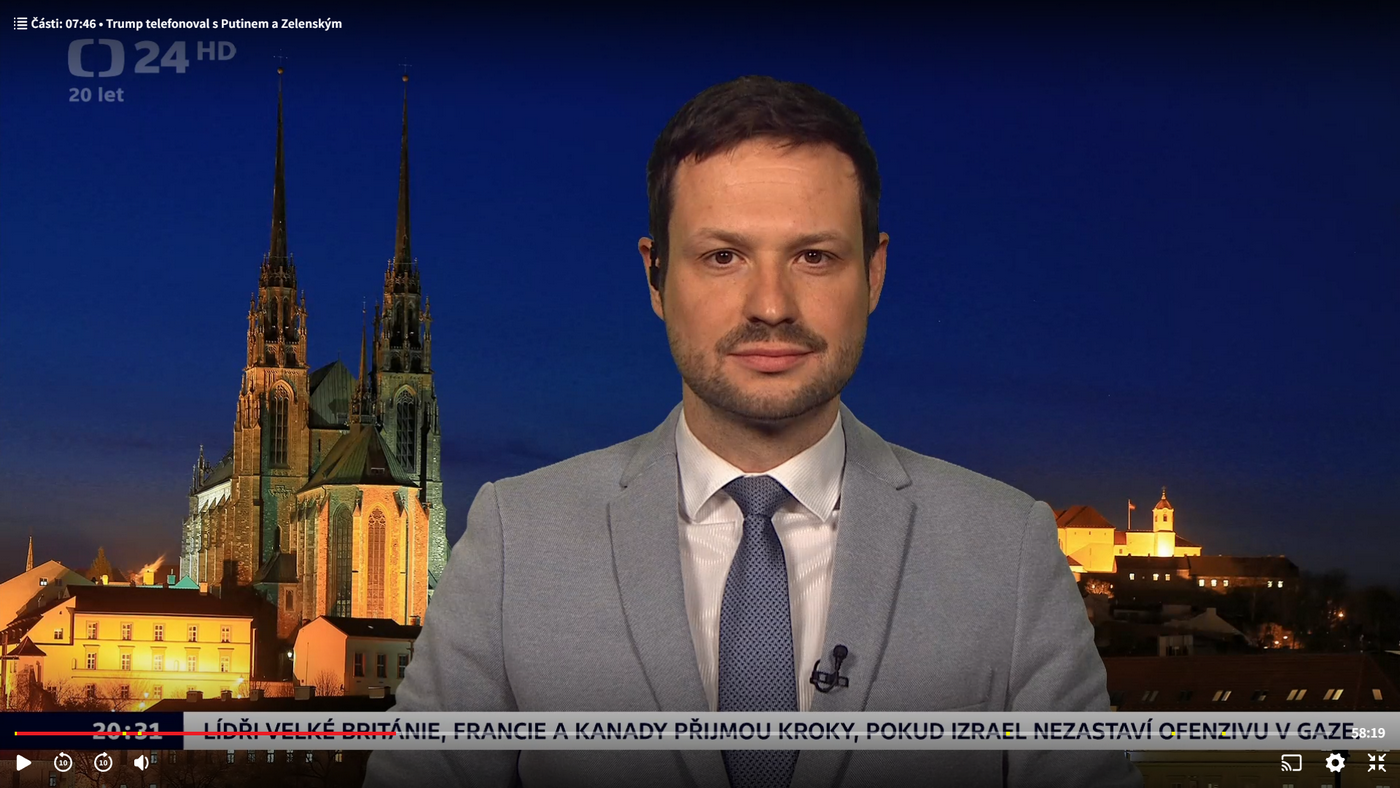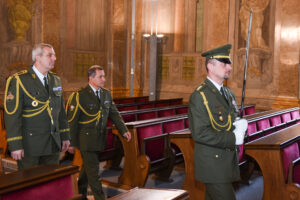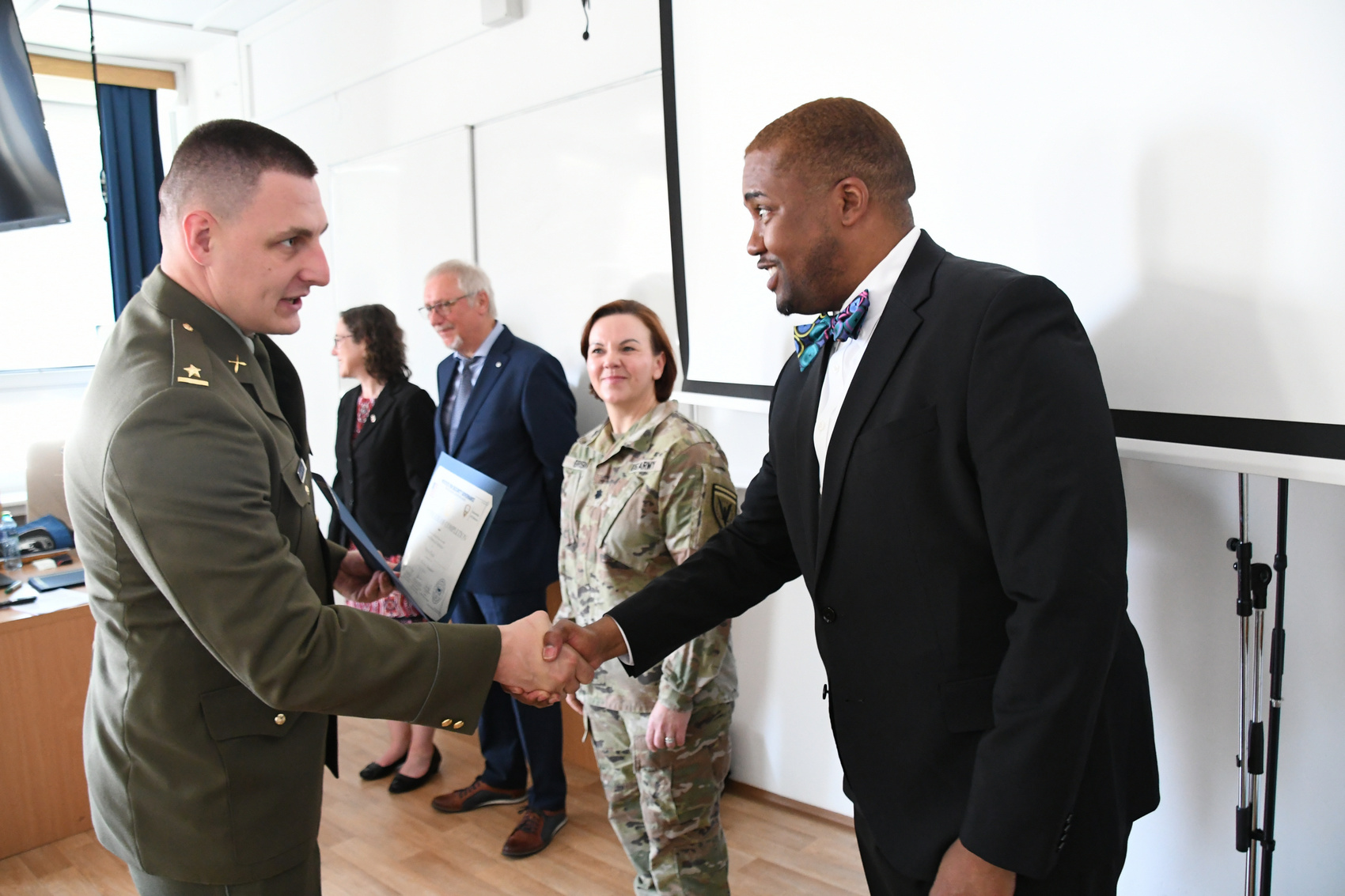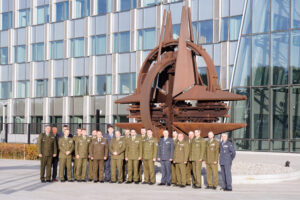Mgr. Lukáš Dyčka, Ph.D., head of the course management department at the Centre for Security and Military Strategic Studies (CSMSS) at the University of Defence, appeared on May 19, 2025, on the discussion program 90’ on ČT24 (starting around 20:31), alongside other experts. The focus was on the international security situation and the current developments in relations among global powers.
In his contributions, Dr. Dyčka focused primarily on the dynamics between the USA, Russia, and Ukraine, including the broader implications for regional security in Eastern Europe.
Main Discussion: The Recent Call Between Presidents
The debate opened with the recent phone call between U.S. President Donald Trump, Russian President Vladimir Putin, and Ukrainian President Volodymyr Zelensky. Dr. Dyčka analyzed the possible motives behind the peace talks. According to him, neither side demonstrated a genuine willingness to achieve peace, as both still aim to win the war militarily.
Instead, there appear to be two different proxy motives:
- A bid for time: This aligns with Ukraine’s strategy of “ceasefire first – then negotiations,” a condition Russia has not accepted.
- Signaling diplomacy: Both parties may be trying to gain legitimacy in the eyes of foreign partners and their domestic audiences by showing a willingness to negotiate—while setting terms the other side cannot accept.
Is Russia Open to a Ceasefire?
Participants also discussed the likelihood of Russia agreeing to a ceasefire. Russia likely suspects that Ukraine is using time to gain further Western support and rearm and reposition its forces. Regardless, Russia’s advance on the battlefield is slowing. This could be due to:
- Equipment wear and efforts to conserve resources, or
- Preparations for another offensive.
Lessons for the Czech Republic
Dr. Dyčka highlighted Ukraine’s well-functioning arms industry as a point of inspiration for the Czech Republic, even under challenging conditions—an assessment shared by other panelists.
Conversely, he pointed to the declining quality of new Ukrainian army recruits, who lack the early-war volunteer motivation. He also briefly touched on the negative social impacts of the ongoing war on Ukraine’s population, including:
- One-quarter of the population leaving the country,
- And the breakdown of many soldiers’ families—both factors adversely affecting morale.
On the Ukraine-Russia Mining Agreement
Regarding the mineral extraction deal between Ukraine and USA, Dr. Dyčka believes it is less about security guarantees and more about a quick political win that Donald Trump can “sell” to his voters. Concrete outcomes from this deal are unlikely in the medium term, due to the complexity and cost of potential mining. Nevertheless, it may indicate deeper U.S. engagement with Ukraine.
Closing Topic: Possible Summit of World Leaders
The show ended with a discussion of a potential summit between leaders of the U.S., EU, UK, Russia, and Ukraine. Dr. Dyčka expressed skepticism about its usefulness, suggesting that Vladimir Putin would likely avoid attending a summit where all other participants were united on the opposite side. He would be at a major disadvantage.
Other guests included:
- Jakub Landovský, Executive Director of Aspen Institute Central Europe and former ambassador to NATO,
- Roman Joch, publicist from the Civic Institute,
- Daniela Kolenovská from the Institute of International Studies, Faculty of Social Sciences, Charles University,
- Vojtěch Bahenský, also from the Institute of International Studies, FSV UK.
These participants offered a range of expert perspectives on international relations, security policy, academia, and historical analysis of current events.
Author: CSMSS




